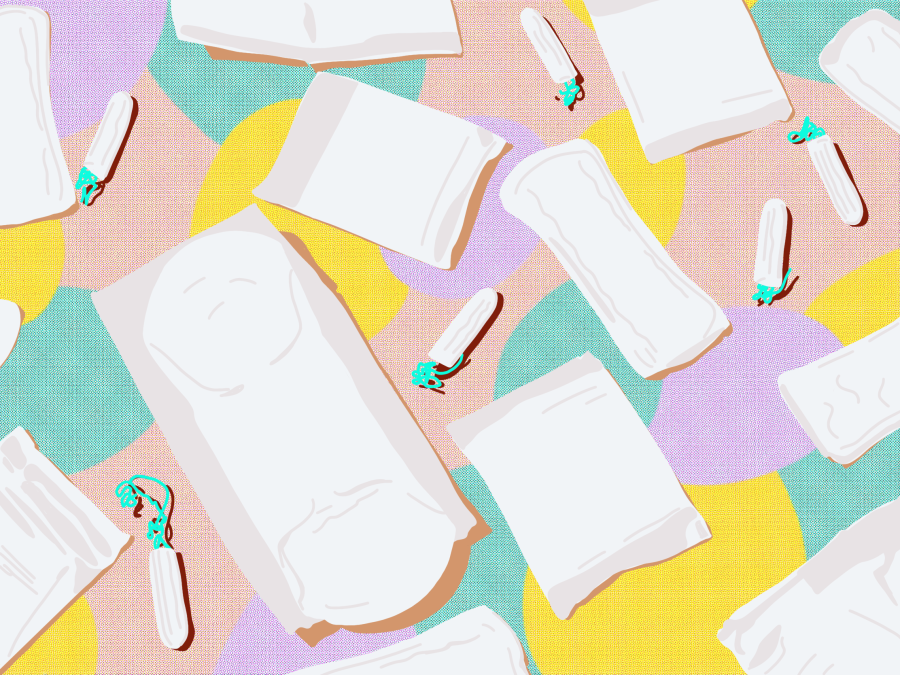Gov. Gavin Newsom’s Menstrual Equity for All Act of 2021 requires California public high schools to provide free menstrual products in all womens and gender-neutral restrooms on their campus, as well as in one mens restroom on their campus, starting this school year.
However, according to a Schoology survey sent out by The Campanile on Aug. 23, of 170 respondents, less than 10% of students said they were able to consistently access menstrual products in restrooms on campus.
To better meet the new state mandate, The Campanile urges PAUSD to consistently stock menstrual products in campus restrooms, rather than directing students to other campus buildings, to ensure accessibility as well as comfort and safety.
At the start of the 2022-2023 school year, administration directed custodians to install signs in restrooms around campus, informing people they could find free feminine hygiene products in the Health Office, library and Athletics Office.
Because of these signs, custodians have also stopped stocking products in bathroom dispensers.
Though products are supplied on campus, not having them in the bathrooms where students need them the most, often during emergencies, creates inconvenience and causes students to miss class time.
Also, not having products stocked in bathrooms violates the spirit of the state law.
Rosemarie Dowell, The Health Services Coordinator for PAUSD, told The Campanile stocking products in other campus buildings is a temporary way to meet state requirements.
But no administrator interviewed had information about when menstrual products will be stocked in bathrooms.
And Assistant Principal Jerry Berkson told The Campanile having products in centralized locations across campus is more efficient than in baskets in restrooms, where they were last year.
Berkson said the current system prevents people from grabbing too many products or flushing them down the toilet, creating costly plumbing issues.
The Campanile recognizes this concern and asks students to be respectful of the free products, taking only the necessary amount.
Yet, the law’s purpose is to “increase the availability and affordability of menstrual products for all individuals with limited access,” and products are most accessible in campus restrooms, not in a central location
Instead of removing menstrual products from bathrooms, administrators should consider alternative distribution methods that will protect product accessibility.
These methods should also ensure responsible use. For example, dispensers are an effective way to control the number of products released.
To the administration’s credit, Berkson did say new menstrual product dispensers were ordered 10 months ago and have not arrived.
While global supply chain issues have caused delays in the delivery of many products, a 10-month delay without an imminent solution means, at the very least, administrators should communicate to the student body their plan to comply with state law and a timeline for the plan’s roll out.
Additionally, Secretary Pamela Garcia told The Campanile that she started buying menstrual products out of her own pocket a few years ago after students told her the school-provided products were uncomfortable and often out of stock.
The Campanile praises Garcia’s efforts and calls on administrators to fix the problem rather than having staff members pay for products using their own money, especially given that menstrual products are expensive.
The Campanile urges administrators to follow state law and ensure menstrual products remain accessible in restrooms at all times. We also call on PAUSD officials to support the school’s effort to do so.
While it may be inconvenient and expensive, and while some students may not use the products as intended, that doesn’t give the district the right to not follow state mandates.



